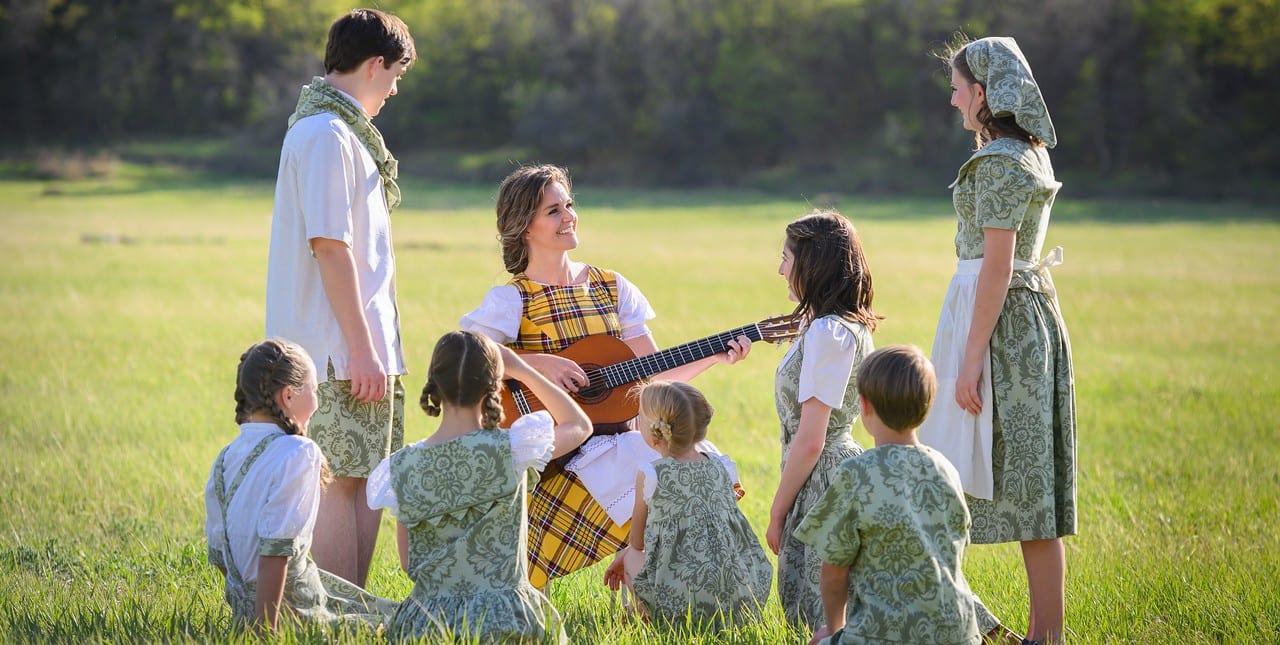OREM — “Doe, a deer, __________.” If you filled in the blank, then you are not immune to the popularity and charm of The Sound of Music. The original 1959 stage production, based on the memoir of Maria von Trapp and set to music by the beloved team of Richard Rodgers and Oscar Hammerstein II in their final collaboration, won five Tony Awards, including Best Musical. The 1965 film adaptation starring Julie Andrews won five Academy Awards, including, yes, Best Picture. Be aware that being exposed to a stellar revival such as that currently playing at Orem’s Hale Center Theater has been known to cause life-long addiction to musical theater.

The Sound of Music is a love story which includes love of God, love of family, love of country, love of a man and a woman. Debra Weed Hahn portrays Maria with charm and enough energy to out “perky” any two Disney princesses combined. Her vivacity is an antidote for the grave Captain von Trapp (played by Rex Kocherhans), who gradually realizes his need to move on with his life after the death of his wife. Their scenes together are engagingly tender and believable. Kocherhans, refreshingly, is no young “prince charming,” but a mature man whom one can believe might have been a commanding officer, and he uses his gorgeous voice to express emotions in songs like “Edelweiss” with subtle power. Moreover, all seven of the children the cast as the von Trapp children (plus Rolf, the crush of eldest daughter Liesl) are perfectly cast. They sing, dance and act as professionally as any adult, yet avoid coming across as slick or canned. It is no wonder Maria finds them irresistible, especially in songs like “Do Re Mi” and “So Long, Farewell.”
The nuns and would-be-nuns in this production are utterly adorable, each with her own instantly recognizable character. Their choral singing is nothing short of heavenly. Michelle Sundwall, as Mother Abbess, is genuine and compassionate, and her stunning, glorious singing redeems “Climb Every Mountain,” a piece that too often comes across as stolid. Both my husband and I will admit to misting up.

Director Neal C. Johnson was aware that The Sound of Music is an account of events that occurred in the 1930s, so the show contains attitudes that can seem outdated or that are not necessarily politically correct. Rather than “cancelling” the production though, the show has been subtly updated. Instead of Rolf (played by Channing Paxman) using the “Sixteen Going on Seventeen” song as a way to assert dominance over Liesl, under Johnson’s direction Rolf seems to express that he himself isn’t quite ready for the world of women. Eager Liesl comes to realize that she could use the guidance of “someone older and wiser,” specifically a mother figure. And in Maria’s reprise of the same song the change of phrase “belong to” to “belong with” makes an enormous difference.
This production of The Sound of Music also subtly communicates the desperation underlying various characters’ choices in the show, particularly the compromises made by bon vivant Max (played by Ben Parkes) and scheming Elsa (played by Christie Gardiner), shown in their dialogue (in a script written by Howard Lindsay and Russel Crouse) and the song “No Way to Stop It.” The message of the brutality of the Nazi regime crescendos when the beautiful painted backdrop of the Alps (created by set designer Jason Baldwin) is covered over by projected Nazi flags. It is a visual moment that functions as a kick in the gut.
If descriptors such as “sweet,” “uplifting,” “engaging,” and “your parents would love it if your took them to it” are too cloying for your cynical tastes, by all means skip this production of The Sound of Music. Leave the few available tickets to the cheerful folks who will gladly snap them up to see this infectious, enjoyable production. Just ignore the person unconsciously humming a suspiciously familiar melody in the grocery store checkout line long after this show has closed – it very well might be me. You have been warned.
[box]The Sound of Music plays nightly (except Sundays) at 7:30 PM, with matinees on Saturdays at noon and 4 PM through August 7 (and a 4 PM matinee on July 2), at Hale Center Theater (225 West 400 North, Orem). Tickets are $22-30. For more information, visit haletheater.org.[/box]

